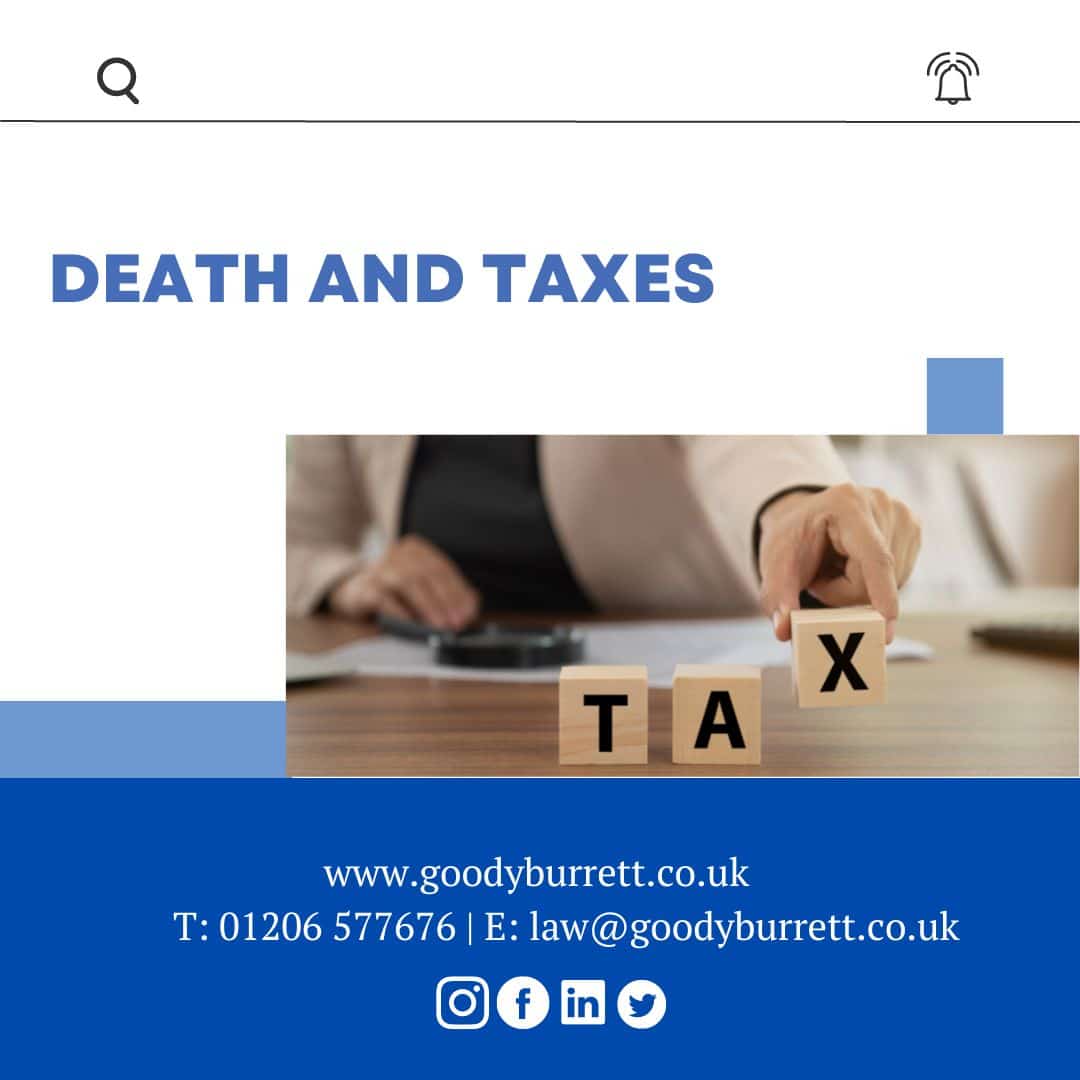
Death and Taxes
There are two certainties in life – death and taxes. Sometimes at the same time. How lucky we are.
Yes, inheritance tax or IHT is the one we love to hate and HMRC are cracking down on bereaved families who fail to pay the correct amount following their loved ones passing. In the tax year 2021/2022, they billed £326m rectifying IHT underpayments -almost one third up on the previous year.
When we die, we each have a nil rate band of £325,000. This means that the first £325,000 of our estate will be inheritance tax free. If we are passing the family home to our children or grandchildren, we also get the residence nil rate band of £175,000. This means that the next £175,000 of our estate will be inheritance tax free.
When an estate passes from a deceased spouse to their widow(er), this benefits from the spouse exemption. The widow(er) will inherit the entire estate inheritance tax free, and their deceased spouse’s nil rate band(s). A married couple with children then can have up to £1m inheritance tax free. Certainly, this seems generous, but rising property prices have meant that increasingly estates are exceeding the threshold for IHT liability. As a result, last year a record £6.1 billion of inheritance tax was paid.
A common reason why bereaved families are not paying enough inheritance tax is because they are not declaring in full the deceased’s assets. It might be an old painting that’s sat in the living room for years, or a diamond ring that’s been in the family for generations.
However, HMRC can access a wealth of our personal information using a database called Connect. It will reveal the deceased’s bank accounts, property details and insurance policies. If IHT payments do not match those predicted by HMRC, they may investigate further. If an asset such as a piece of jewellery or fine art is insured, HMRC will know of its existence. Even if this valuable asset changed hands over 7 years before death thereby rendering it exempt from IHT, HMRC will demand evidence of this. Families should be careful too of undervaluing the deceased’s home. We suggest obtaining at least three market appraisals and taking an average.
Unpaid inheritance tax attracts interest of 6%, a rate that has more than doubled in the past year. Add to this a penalty of anywhere between 20% to 100% of the IHT due depending on whether the family made a genuine mistake or acted deliberately, and their efforts to conceal it.
Families should remember too that if they fail to disclose or undervalue just one asset, inadvertently or not, they will be perceived as less credible by HMRC, who will look to scrutinise the deceased’s estate further.
If you would like to discuss anything to do with Wills, Trusts or Probate, please contact our Private Client Team who are available for appointments on 01206 577676 or alternatively email us at [email protected]
For more information
Contact us on 01206 577676 or you can email [email protected]

